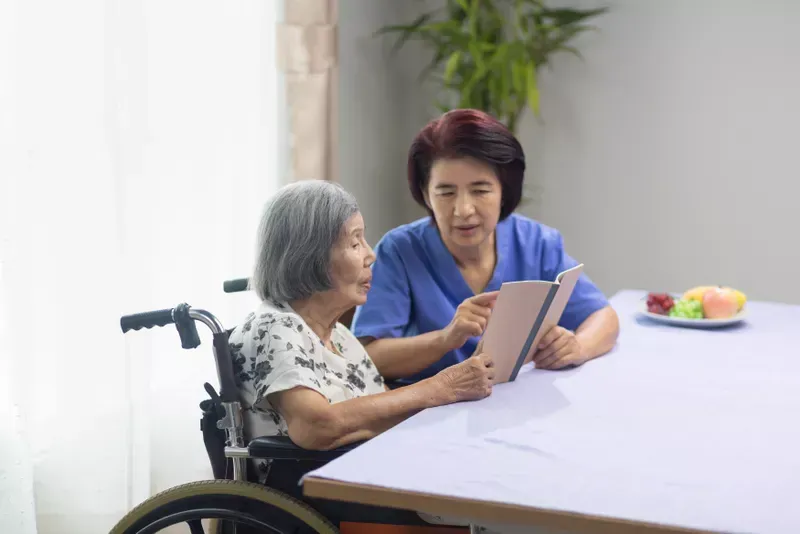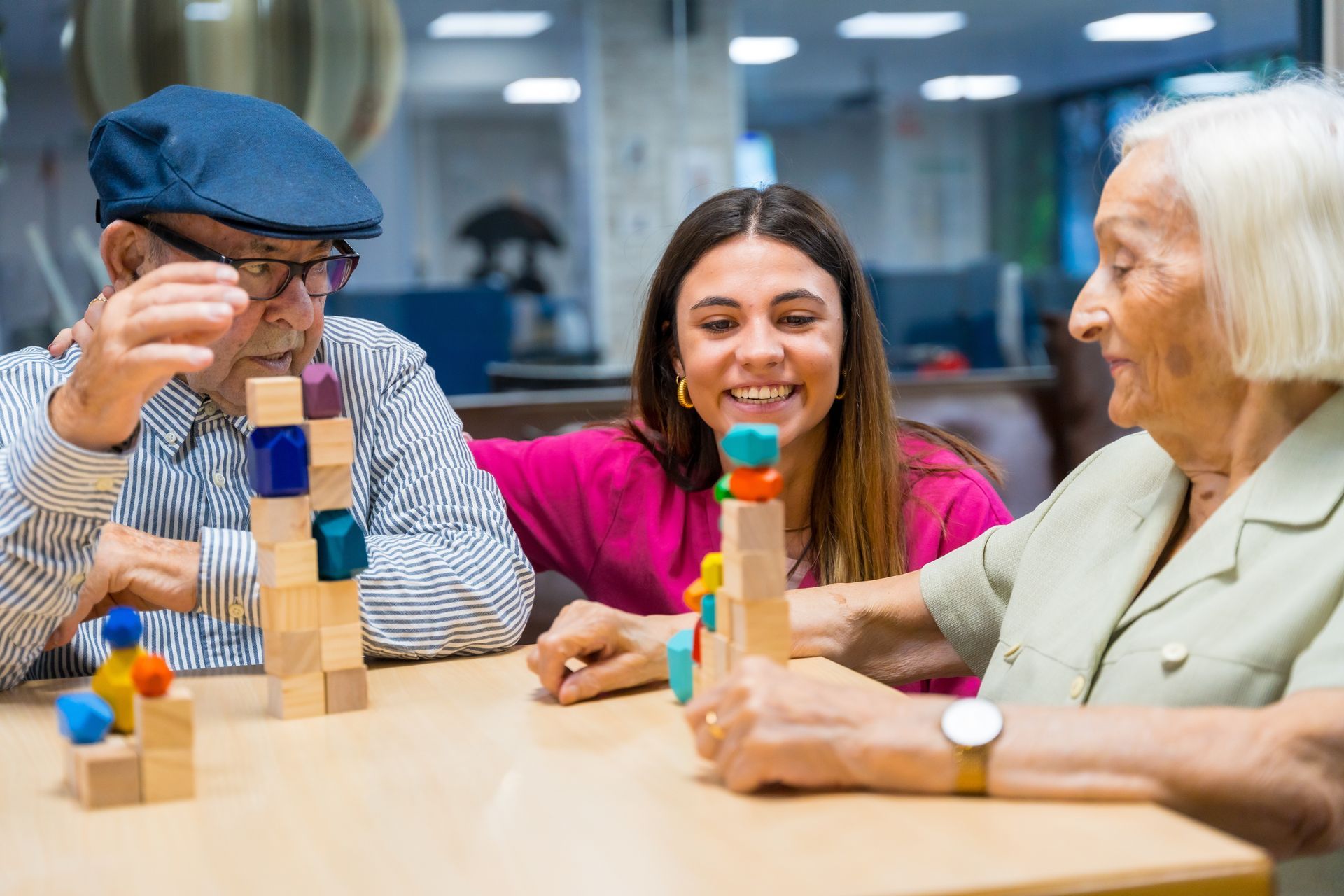BLOG
The Role of Speech Therapy in Brain Injury Recovery
Brain injuries can significantly impact an individual's ability to communicate effectively. Speech therapy plays a crucial role in the rehabilitation process, especially for seniors. Therapists help individuals regain essential communication skills by addressing speech and language deficits. This article explores the importance of speech therapy in brain injury recovery for seniors.
Effective communication is vital for maintaining relationships and overall quality of life. After a brain injury, challenges such as aphasia or dysarthria may arise. Speech therapy aims to mitigate these issues through personalized treatment plans. Early intervention can lead to more favorable recovery outcomes.
Assessing Speech and Language Deficits Post-Injury
The first step in speech therapy involves a comprehensive assessment of the individual's communication abilities. Therapists evaluate speech clarity, language comprehension, and cognitive communication skills. Standardized tests and observational methods are employed to identify specific deficits. This thorough evaluation forms the basis for a tailored therapy plan.
Identifying the severity and type of speech or language impairment is crucial. For instance, aphasia affects language processing, while dysarthria impacts speech muscle control. Understanding these distinctions allows therapists to implement targeted interventions. Regular re-assessments track progress and adjust therapy goals as needed.

Family members often provide valuable insights during the assessment phase. Their observations about the individual's communication challenges in daily life are essential. Involving the family ensures that therapy addresses real-world communication needs. This collaborative approach enhances the effectiveness of the rehabilitation process.
Advanced diagnostic tools, such as videofluoroscopy, may be utilized for in-depth analysis. These tools help visualize the mechanics of speech and swallowing functions. Accurate assessment leads to more precise and effective therapy interventions. Early and correct identification of deficits is key to successful rehabilitation.
Developing Personalized Treatment Plans for Brain Injury Recovery
Based on assessment results, speech therapists create individualized treatment plans. These plans focus on the specific needs and goals of the senior undergoing therapy. Interventions may include exercises to improve articulation, language comprehension, and cognitive communication skills. Personalized plans ensure that treatment is relevant and effective for each individual.
Therapy goals are set collaboratively with input from the individual and their family. This ensures that the objectives align with the person's daily communication needs and aspirations. The treatment plan is reviewed and adjusted regularly to accommodate progress and changing needs. Flexibility in planning contributes to sustained improvement over time.
Incorporating the individual's interests and preferences can enhance engagement in therapy. For example, using favorite topics or activities during sessions increases motivation. A person-centered approach fosters a positive therapeutic environment, and this personalization leads to more meaningful and lasting outcomes.
Technology may be integrated into treatment plans to support communication. Tools like speech-generating devices or apps assist those with severe speech impairments. Therapists provide training to ensure the effective use of these technologies. Access to appropriate tools empowers individuals in their communication efforts.
Implementing Therapeutic Interventions
Therapeutic interventions are tailored to address the specific deficits identified in the assessment. For seniors with articulation issues, exercises may focus on strengthening oral muscles. Language-based therapies might involve practicing word retrieval and sentence formation. Cognitive communication therapy addresses skills like attention, memory, and problem-solving.
Sessions are structured to gradually challenge the individual's abilities. Gradual increases in task complexity promote skill development without causing frustration. Therapists provide immediate feedback to guide improvements and reinforce correct responses. Consistent practice and repetition are key components of successful intervention.
Incorporating real-life scenarios into therapy enhances functional communication skills. Role-playing in everyday situations, like ordering food or making phone calls, builds confidence. This practical approach ensures that improvements translate to everyday interactions, and functional relevance increases the likelihood of sustained progress.
Family involvement in therapy sessions can be beneficial. Training family members to support communication strategies at home reinforces therapy goals. A supportive home environment contributes significantly to recovery. Collaboration between therapists and families enhances the overall rehabilitation process.
Addressing Cognitive-Communication Challenges During Brain Injury Recovery
Brain injuries often lead to cognitive communication challenges, affecting the ability to process and convey information. Speech therapists work to improve skills such as attention, memory, and executive function. Interventions may include tasks that enhance problem-solving and organizational abilities. Strengthening these skills supports effective communication in daily life.

Therapists use evidence-based techniques to target specific cognitive deficits. For example, memory aids and strategies can assist with recall during conversations. Attention-training exercises help individuals maintain focus during communication. Improving executive functions enables better planning and organization of thoughts.
The primary goal is to generalize cognitive communication skills to real-world settings. Therapists design activities that mimic daily tasks to facilitate this transfer.
Techniques Used in Speech Therapy for Brain Injury Recovery
Speech therapy employs various techniques tailored to individual needs. Therapists often use exercises that improve speech clarity and muscle coordination. Oral motor exercises, for example, can strengthen the muscles used for speaking. Visual aids and cueing systems also assist patients in forming words and sentences.
Cognitive communication therapy focuses on improving memory and problem-solving skills. This approach is beneficial for seniors who struggle with cognitive impairments after an injury. Therapists might use tasks such as sequencing events or solving puzzles. These exercises enhance overall communication abilities by addressing underlying cognitive challenges.
Technology also plays a significant role in speech therapy. Apps and devices designed for speech rehabilitation can provide additional support. For instance, text-to-speech programs assist those with severe speech deficits. These tools supplement traditional therapy, offering patients new ways to communicate effectively.
Therapists frequently involve families in the therapy process. It is vital to teach family members how to support communication at home. Simple strategies, like speaking slowly or using visual cues, can make a significant difference. This collaborative approach ensures that progress continues outside therapy sessions.
Rebuilding Cognitive-Communication Skills
Cognitive communication impairments are another challenge faced by brain injury survivors. These issues often involve difficulties with attention, memory, and problem-solving. Speech therapy addresses these deficits by incorporating cognitive exercises into the treatment plan. The goal is to restore functional communication for daily life activities.
Therapists might use memory aids, like notebooks or apps, to support recall. These tools help patients organize their thoughts and remember important details. Recording daily events or practicing phone conversations improves cognitive-communication skills. Consistent practice ensures that progress is sustained over time.
Improving attention is another focus area in speech therapy. Exercises that involve sorting or categorizing items can sharpen concentration. These tasks are designed to increase in complexity gradually as patients improve. Stronger attention skills contribute to better overall communication and task management.
Speech therapists also work on problem-solving and reasoning skills. They practice scenarios such as planning a shopping trip or navigating public transportation, which enhances the individual’s ability to handle real-life challenges. As cognitive-communication skills improve, seniors regain confidence in their independence.
The Importance of Early Intervention in Brain Injury Recovery
Early intervention is critical to successful brain injury recovery. The sooner speech therapy begins, the better the outcomes will likely be. Prompt treatment helps prevent long-term communication impairments and cognitive decline and increases the chances of regaining lost skills more quickly.
Early therapy sessions focus on stabilizing communication abilities. Therapists address immediate concerns, such as difficulty swallowing or speaking. These initial efforts set the stage for more advanced rehabilitation techniques. Quick action ensures that deficits are identified and treated effectively.
Research shows that early intervention positively impacts neuroplasticity, a process in which the brain reorganizes itself to compensate for injury. Speech therapy encourages neural adaptation through targeted exercises and practice. By leveraging neuroplasticity, therapists help individuals recover more efficiently.
Delaying therapy can lead to complications, such as social withdrawal or reduced independence. Early treatment minimizes these risks by promptly addressing challenges. Seniors who receive immediate support are more likely to maintain their quality of life. Early intervention is a key element in achieving a successful recovery.
Partnering with Experts for Comprehensive Recovery
Speech therapy is an essential component of brain injury recovery. It addresses communication challenges, cognitive deficits, and emotional well-being. Through personalized treatment plans, individuals regain the skills needed for independence and social connection. Speech therapy benefits extend beyond physical recovery, fostering a holistic healing process.
At Assured Senior Living, we understand the unique needs of brain injury survivors. Our specialized programs provide comprehensive support, including speech therapy tailored to seniors. With a compassionate team and evidence-based methods, we guide individuals through every step of their recovery journey. Contact us today to learn how we can help your loved one achieve their rehabilitation goals.















